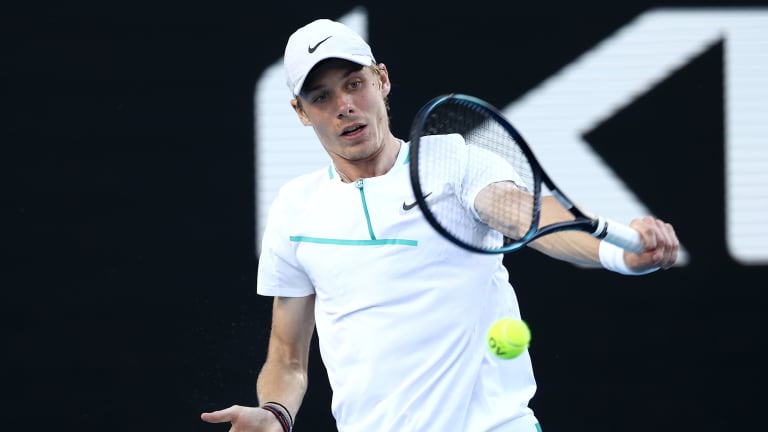Australian Open
Denis Shapovalov is knocking on the door again. What are his chances of repeating his performance against Zverev in the quarters, against Rafa?
By Jan 23, 2022Australian Open
Nick Kyrgios takes step back from singles at Australian Open, Stan Wawrinka gets wild card
By Jan 09, 2026Australian Open
Could you win a point against a pro? Previewing the Australian Open's innovative '1 Point Slam'
By Jan 09, 2026Australian Open
Zheng Qinwen confirms withdrawal from 2026 Australian Open
By Jan 08, 2026Australian Open
Australian Open prize money hits record high
By Jan 06, 2026Australian Open
Venus Williams will become oldest woman to compete in an Australian Open main draw with wild card entry
By Jan 02, 2026Australian Open
Roger Federer to headline “Battle of the World No.1s” at Australian Open’s inaugural Opening Ceremony
By Dec 11, 2025Australian Open
Australia at Last: Reflections on a first trip to the AO
By Jan 29, 2025Australian Open
Alexander Zverev must elevate his game when it most counts—and keep it there
By Jan 27, 2025Australian Open
Jannik Sinner draws Novak Djokovic comparisons from Alexander Zverev after Australian Open final
By Jan 26, 2025Denis Shapovalov is knocking on the door again. What are his chances of repeating his performance against Zverev in the quarters, against Rafa?
The 22-year-old is into his third Grand Slam quarterfinal, and he famously topped Rafa in Montreal five years ago.
Published Jan 23, 2022
Advertising
Advertising

Shapovalov is best known for his one-handed backhand, a weapon from the baseline, but he also wins plenty of points by coming forward.
© Getty Images